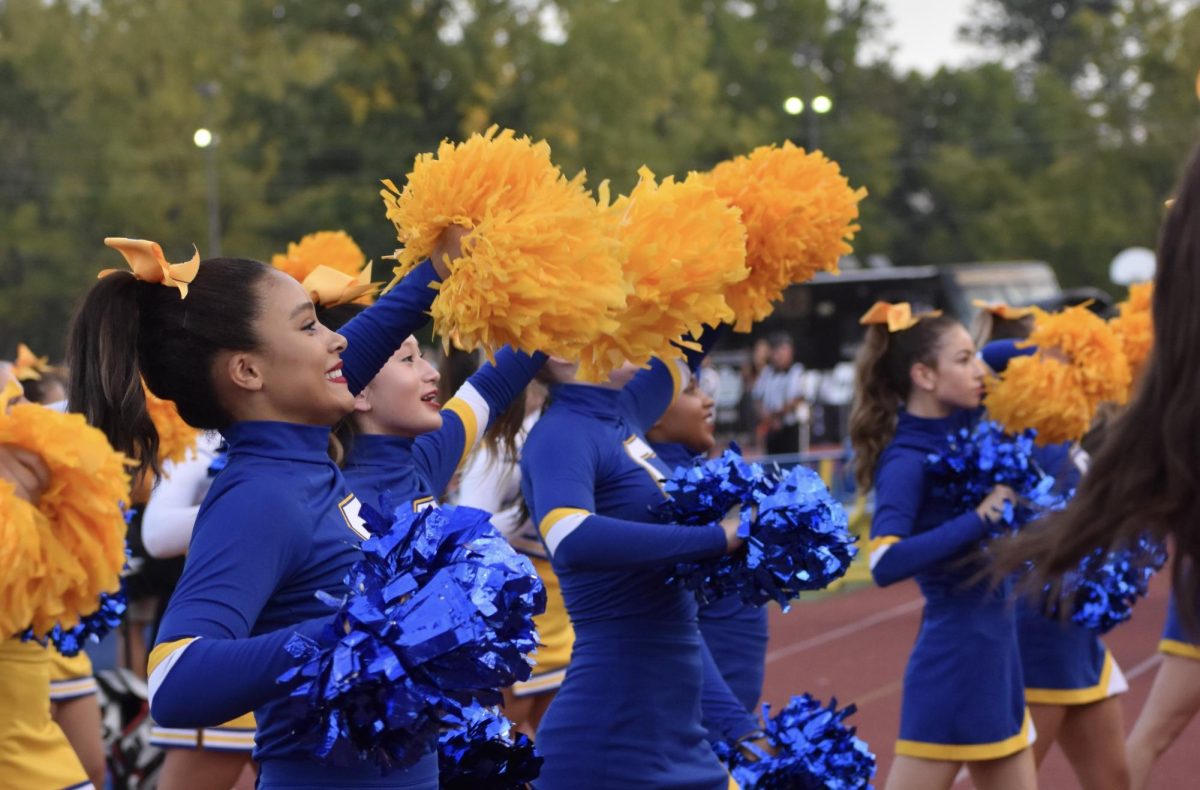Senior Maxwell Teal has been playing soccer all of his life and, as an athlete, takes pride and necessity in keeping his body healthy and functioning properly by getting enough sleep each night. However, last spring, when he tore an anterior ligament in his left ankle at one of his soccer practices, Teal had a wakeup call.
“I did not get enough sleep,” Teal said. “At practice, I could not focus at all. I was lightheaded, my coordination was off, my legs were heavy and I was tired and out of breath. I stepped on a divot in the ground and because I was not my normal self; I went down immediately in pain. If I had slept more, this probably would not have happened.”
Many teenage athletes, however, fail to realize the impact sleep as well as lack thereof has on their sports performance and body. In a study performed by the American Academy of Pediatrics (AAP), an organization dedicated to attaining optimal physical, mental and social health and well-being for all infants, children, adolescents and young adults, subject athletes who slept eight or more hours each night were 68 percent less likely to be injured than athletes who regularly slept less. In a second study performed by the AAP, 76.7 percent of the participants reported sleeping less than eight hours each night. After studying them for 21 months, 57 percent of the participants had sustained injuries and 38 percent had gone on to suffer multiple injuries.
These experiments, however, are only half of the understanding of how sleep ties to sports injuries. The other half lies beneath the skin. Sleep gives muscles and ligaments a chance to relax, heal and ready themselves for more training. According to Todd Arnold, sports medicine physician at St. Vincent Sports Performance Center, this recovery purpose is one of sleep’s most important assets.
“Athletes in general need sleep as part of their recovery from activity,” Arnold said. “It is crucial for the athlete to have enough sleep to allow the body to recover from the training. The whole body and everything inside of it will be fatigued otherwise. The rest helps the muscles gain their nitrogen balance, lactic acid to be returned to a high level and the body gain nutrition.”
Sleep deprivation also affects the body physiologically. According to Elizabeth Quinn’s sports medicine About.com article, “Sleep deprivation reduces sports performance,” meaning that lack of sleep damages the body’s glucose metabolism and cortisol status in that the level of cortisol (stress hormone) increases, growth hormones in charge of repairing tissues fail to function effectively and less glycogen is produced. Glucose and glycogen are what give athletes energy. They are stored in muscles and the liver in order to provide available fuel for endurance activities. A small amount of sleep means a slower storage of glycogen which means less available energy. Furthermore, higher levels of cortisol prevent tissues from repairing and growing, eventually preventing the athlete from competing heavily.
Sleep deprivation ties to athletics even further. It negatively affects the athlete’s mind. Decreased sleep can inhibit a person’s reaction time, short term memory and ability to process information and stay on task, all three of which prove to be significant as a large part of sports is processing information and reacting to parts of the competition. According to Doug McKeag, One America and Preventive Medicine Professor at Indiana University School of Medicine, it is when these actions stray from normality that injuries start to appear.
“If an athlete becomes ‘slow’ when sleep deprived, he or she cannot respond to competitive situations quickly,” McKeag said. “This places body parts (head and extremities) in vulnerable positions for a longer time. Thus, injuries occur.”
For Teal, the joint relationship between sleep and athletics resides solely around self-recognition and understanding.
“Teen athletes just do not feel that they need the sleep,” Teal said. “They do not understand the importance of sleep and rest. Every athlete requires a substantial amount of sleep every single night if one wishes to perform at the highest level without a greater fear or possibility of injury. In this sense, the body controls you. You cannot run around unless the body runs around also.”

































![British royalty are American celebrities [opinion]](https://hilite.org/wp-content/uploads/2024/03/Screenshot-2024-03-24-1.44.57-PM.png)



















![Chelsea Meng on her instagram-run bracelet shop [Biz Buzz]](https://hilite.org/wp-content/uploads/2024/04/IMG_2446-1200x838.jpg)
![Review: Quiet on Set: The Dark Side of Kids TV is the long awaited exposé of pedophilia within the children’s entertainment industry [MUSE]](https://hilite.org/wp-content/uploads/2024/04/unnamed.jpg)
![Review: “The Iron Claw” cannot get enough praise [MUSE]](https://hilite.org/wp-content/uploads/2024/04/unnamed.png)
![Review: “The Bear” sets an unbelievably high bar for future comedy shows [MUSE]](https://hilite.org/wp-content/uploads/2024/03/unnamed.png)
![Review: “Mysterious Lotus Casebook” is an amazing historical Chinese drama [MUSE]](https://hilite.org/wp-content/uploads/2024/03/0.webp)
![Review in Print: Maripaz Villar brings a delightfully unique style to the world of WEBTOON [MUSE]](https://hilite.org/wp-content/uploads/2023/12/maripazcover-1200x960.jpg)
![Review: “The Sword of Kaigen” is a masterpiece [MUSE]](https://hilite.org/wp-content/uploads/2023/11/Screenshot-2023-11-26-201051.png)
![Review: Gateron Oil Kings, great linear switches, okay price [MUSE]](https://hilite.org/wp-content/uploads/2023/11/Screenshot-2023-11-26-200553.png)
![Review: “A Haunting in Venice” is a significant improvement from other Agatha Christie adaptations [MUSE]](https://hilite.org/wp-content/uploads/2023/11/e7ee2938a6d422669771bce6d8088521.jpg)
![Review: A Thanksgiving story from elementary school, still just as interesting [MUSE]](https://hilite.org/wp-content/uploads/2023/11/Screenshot-2023-11-26-195514-987x1200.png)
![Review: When I Fly Towards You, cute, uplifting youth drama [MUSE]](https://hilite.org/wp-content/uploads/2023/09/When-I-Fly-Towards-You-Chinese-drama.png)
![Postcards from Muse: Hawaii Travel Diary [MUSE]](https://hilite.org/wp-content/uploads/2023/09/My-project-1-1200x1200.jpg)
![Review: Ladybug & Cat Noir: The Movie, departure from original show [MUSE]](https://hilite.org/wp-content/uploads/2023/09/Ladybug__Cat_Noir_-_The_Movie_poster.jpg)
![Review in Print: Hidden Love is the cute, uplifting drama everyone needs [MUSE]](https://hilite.org/wp-content/uploads/2023/09/hiddenlovecover-e1693597208225-1030x1200.png)
![Review in Print: Heartstopper is the heartwarming queer romance we all need [MUSE]](https://hilite.org/wp-content/uploads/2023/08/museheartstoppercover-1200x654.png)






















![Review: Ladybug & Cat Noir: The Movie, departure from original show [MUSE]](https://hilite.org/wp-content/uploads/2023/09/Ladybug__Cat_Noir_-_The_Movie_poster-221x300.jpg)

![Review: Next in Fashion season two survives changes, becomes a valuable pop culture artifact [MUSE]](https://hilite.org/wp-content/uploads/2023/03/Screen-Shot-2023-03-09-at-11.05.05-AM-300x214.png)
![Review: Is The Stormlight Archive worth it? [MUSE]](https://hilite.org/wp-content/uploads/2023/10/unnamed-1-184x300.png)



